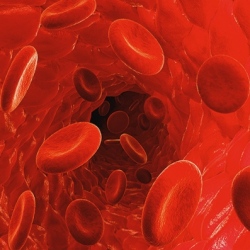
This study may hold the promise of novel anticancer approaches with minimal side effects, if any: Novel therapeutic approaches may often require quite a bit of lateral thinking, as researchers at the Salk Institute have recently shown in a study presenting a novel method to interfere with cancer growth.
The problem with cancer
In a nutshell, the reason cancer is such an insidious enemy is that its cells divide uncontrollably, leading to the formation of tumors that keep growing, impair bodily functions, and in a worst-case scenario, metastasize—they spread from their original site, wreaking havoc around the body.
Thus, methods to directly prevent cancer cell division have long been a major research target worldwide. Salk researchers, however, decided to try to intervene a little earlier in the chain of events, messing with cancerous cells’ growth rather than division. To do so, they interfered with cancer’s ability to evade the constraints imposed by the circadian cycle.
What is the circadian cycle?
You can think of the circadian cycle as a sort of internal clock of your body that regulates many different mechanisms. The cycle starts over about every 24 hours (hence the term “circadian”, coming from Latin circa “about” and dies “day”), and among its many functions, it tells cells when they’re supposed to produce and consume nutrients. Healthy cells are normally allowed to do so for about 12 hours a day, in order to prevent them from being overwhelmed by a flood of excessive nutrients.
When cell mealtime is over, levels of the REV-ERB protein rise, which inhibits the cell’s ability to synthesise fats and shuts down autophagy—the cell’s ability to recycle materials, which has implications for longevity and atherosclerosis, for example. When REV-ERB levels go down again, cells resume fat production and start breaking down useless cellular components.
Cancer’s deep appetite
Obviously, in order to keep dividing indefinitely, cancer cells cannot afford the periodic fasting imposed by the circadian rhythm; before they can divide, they need to grow, and in order to grow, they need nutrients. Therefore, furiously paced division requires furiously paced nutrient intake. Hence, all cancers evolve strategies to get around the circadian limitation.
Cancer cells do contain the REV-ERB protein that switches nutrient consumption on and off, but their relevant machinery stays inactive, which allows them to feast all the time and thus grow quickly. This is where Salk researchers intervened.
The team, led by Professor Satchidananda Panda, used two known REV-ERB activators on several different types of cancer cells, including the ill-famed glioblastoma, an extremely dangerous brain cancer. In all cases, the cancer cells, deprived of nutrients, ended up starving to death, whereas healthy cells, which normally undergo this periodic fasting, were unaffected. Tested in a mouse model of glioblastoma, the treatment successfully eliminated cancer cells while seemingly leaving healthy ones alone.
Conclusion
This study may hold the promise of novel anticancer approaches. However, in order to assess this, follow-up studies will be required to make sure of how exactly REV-ERB activators affect metabolism, particularly the metabolism of the gut microbiome. It should also be noted that this is only one of many possible methods to control cancerous cells’ growth and thus interfere with their ability to proliferate. However, we will follow the development of this research with great interest.
